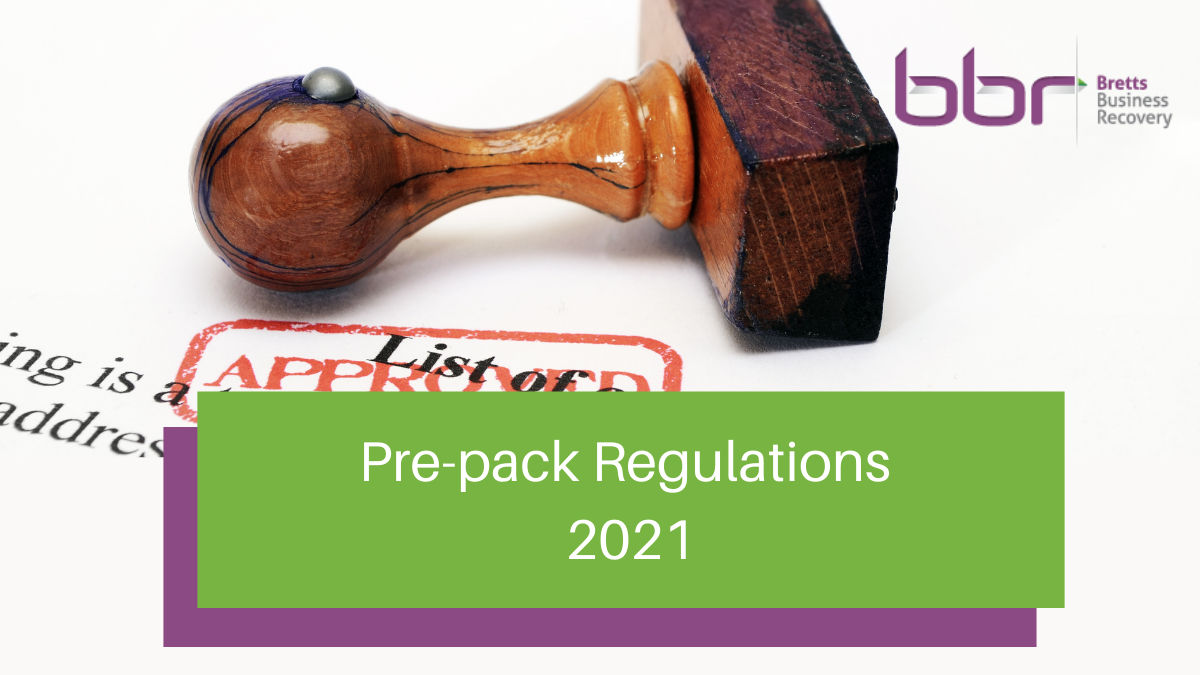New pre-pack regulations: what are they and what are the challenges?

New pre-pack regulations have been approved by Parliament and will come into effect at the end of April 2021. What will these new regulations mean and what challenges are they likely to bring?
What is a pre-pack?
In many cases Administration leads to the sale of the company’s assets on a going concern basis. The sale of the company’s assets may be agreed before the company goes into Administration and completed immediately after the commencement of the Administration. This is commonly known as a “Pre-Pack” or “Pre-Packaged Administration”.
What are the benefits of a pre-pack?
A “Pre-Pack” can ensure a smooth transition with minimal disruption to the business preserving its goodwill and enhancing realisations for creditors. Whilst pre-packs are an extremely useful tool for rescuing a business as a going concern and to preserve value for creditors, there are many criticisms of the current process, including a perceived lack of transparency and accountability and the risk of disadvantaging creditors.
What are the new regulations?
The latest Pre-Pack Regulations are aimed at addressing the longstanding concerns of creditors and look to improve stakeholder confidence by introducing additional mandatory requirements on connected party sales transacted via an administration.
From 30 April 2021 an administrator will be unable to make a substantial disposal of a company’s business and assets to a ‘connected person’ within the first eight weeks of the administration, without either the approval of a majority of creditors or an independent written report from an ‘evaluator’.
As one of the benefits of a pre-pack is its speed, it’s widely thought that the main route to compliance with the Pre-Pack Regulations will be to obtain an evaluator’s report rather than seeking creditor approval. Whilst allowing creditors to have a say in the sales process will enhance confidence that route may, ultimately, take too much time and remove the key benefits of using a pre-pack as a restructuring tool. This has, understandably, meant that most of the commentary on the Pre-Pack Regulations has focussed on the role of the evaluator.
Isobel Brett of Bretts Business Recovery commented:
“We expect to see an increased number of pre-pack arrangements once government support measures come to an end. Whilst we welcome these reforms and the transparencies they will provide for creditors, we do share the concerns many have voiced around the role of the “evaluator” in this process. The regulations state that “evaluators” must be independent, hold relevant knowledge and experience and hold professional indemnity insurance. These pre-requisites don’t feel like enough – we’d like to see an approved list of evaluators or at the very least further measures on how they will be regulated.”
It’s also important to note that reports produced by the evaluator are not binding. If neither the evaluator nor the creditors support the proposal for a pre-pack sale, the Pre-Pack Regulations will allow an administrator to proceed regardless, but with an extra administrative layer (the administrator must send the evaluator’s report to the registrar of companies and all creditors, setting out their reasons for proceeding in this manner).
Only time will tell whether these regulations will be robust enough or whether further reforms will be needed. For full details on the new regulations, see: The Administration (Restrictions on Disposal etc. to Connected Persons) Regulations 2021 (legislation.gov.uk).